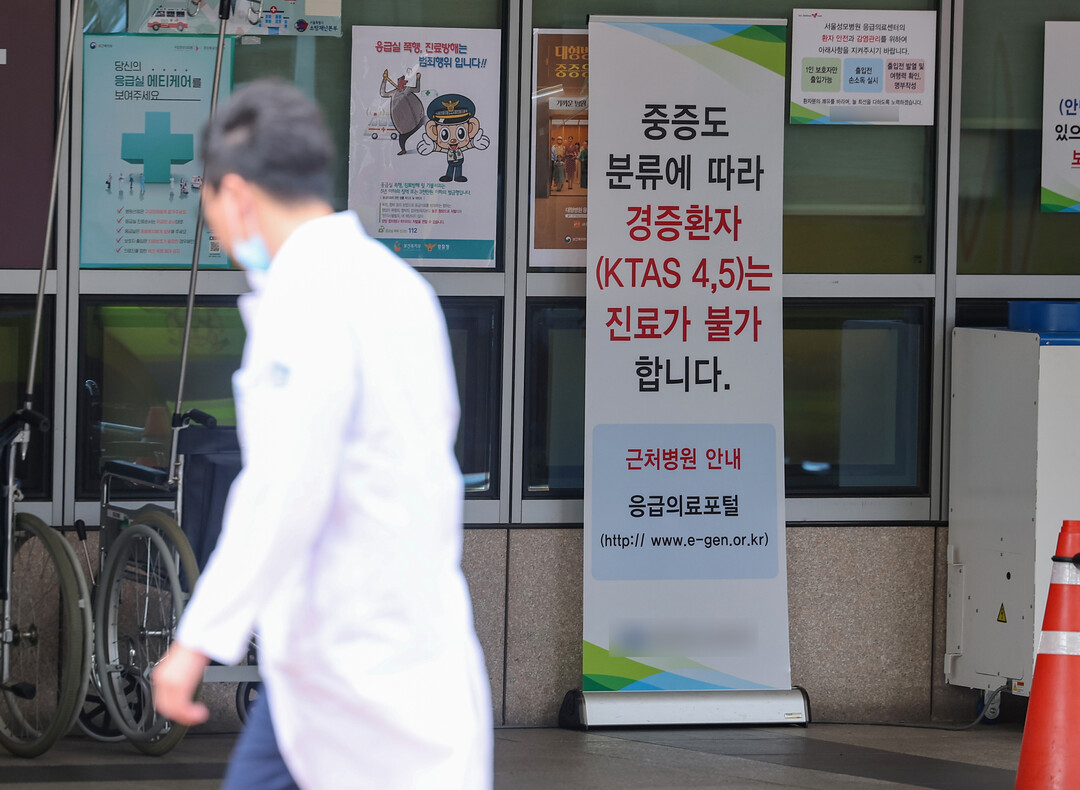
The ongoing conflict between the South Korean government and doctors, which has lasted for over a year, is pushing the healthcare system to its limits. With remaining medical staff struggling to cope with the increased workload, burnout and potential shutdowns are becoming a serious concern.
Professors and other senior doctors have been filling in for junior doctors who left their positions due to the conflict. However, they are now reaching their breaking point, leading to resignations, leaves of absence, and a surge in suspended medical services.
Initially limited to local university hospitals, the "limited medical service" measure is now spreading to major hospitals in the Seoul metropolitan area, raising fears of an unprecedented healthcare crisis.
Signs of overload are evident in emergency rooms, the first point of contact for emergency patients.
While the government's emergency measures, such as significant pay raises, temporarily alleviated the crisis, the prolonged absence of junior doctors is causing a resurgence of the problem.
In fact, Sejong Chungnam University Hospital recently expanded its adult emergency room night care restrictions to full-day operation due to a shortage of medical staff. The service will be suspended from 6 PM to 8 AM for the time being.
Gangwon University Hospital also temporarily suspended its adult emergency room operation at night due to a shortage of specialists.
Chonnam University Hospital and Chosun University Hospital are also facing limitations in emergency room operations. There are concerns that some emergency rooms and operating rooms may be shut down early next month.
In the case of Chonnam University Hospital, it is known that clinical fellows who have been filling the void left by the junior doctors since the conflict began in February of last year will be leaving the hospital at the end of this month due to the expiration of their contracts.
The paralysis of university hospitals is not limited to local areas. Recently, major hospitals in Seoul have also been experiencing disruptions in emergency room operations.
Seoul St. Mary's Hospital, one of the top five hospitals in South Korea, recently suspended cardiovascular emergency patient care, except for acute myocardial infarction and other critical emergencies, due to a manpower shortage caused by the prolonged conflict.
Seoul St. Mary's Hospital sent text messages to returning patients, stating, "Due to a shortage of cardiologists, there will be no cardiologist on duty in the emergency room at night and on holidays from the 10th until further notice."
Cardiology professors have been burdened with managing post-operative critically ill patients, a task previously handled by junior doctors, leading to fatigue and ultimately making normal medical care difficult.
Ewha Womans University Mokdong Hospital has reduced emergency room operations in some time slots due to a shortage of junior doctors.
Ewha Womans University Mokdong Hospital, which operates the Seoul Southwestern Emergency Medical Center, treated more than 60 emergency patients a day before the incident, but in September of last year, it was on the verge of suspending operations.
Hallym University Sacred Heart Hospital, a 780-bed tertiary general hospital, recently faced a situation where outpatient reservations were impossible due to the resignation of half of the cardiology professors.
Of the five cardiology professors at Hallym University Sacred Heart Hospital, all but one are unable to make outpatient reservations through the website, and separate phone reservations are not being accepted.
The problem is that as the medical conflict prolongs, the exodus of medical staff is accelerating, and more university hospitals are expected to have difficulty maintaining emergency care systems in the future.
With clinical fellows and professors no longer able to endure the workload and moving to hospitals with better working conditions, there are growing concerns that "the worst is yet to come," especially in university hospitals.
In fact, since the medical conflict, the number of doctors at tertiary general hospitals has decreased by a total of 8,796. The decrease in the number of specialists, including professors and clinical fellows who have been filling the gap, is evident.
According to an analysis of Health Insurance Review and Assessment Service data by Dailymedi, the number of doctors at 47 tertiary general hospitals decreased by 8,796 (36.14%) in one year, from 24,336 in December 2023 to 15,540.
While the decrease varied from hospital to hospital, it was found that an average of 187 doctors resigned from each tertiary general hospital.
A professor at a university hospital said, "Professors who have been filling the void left by junior doctors are now extremely fatigued. Recently, professors have been leaving, making the situation even more bleak."
"If this situation continues, the remaining staff will eventually be burned out," he added. "The loss of medical functions at university hospitals will spread rapidly."
[Copyright (c) Global Economic Times. All Rights Reserved.]






























